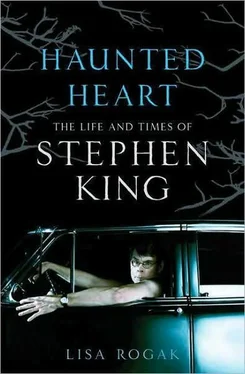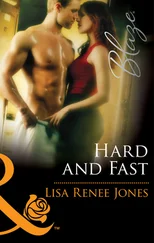A flash of disappointment crossed her face. She told him those comics were mostly one-note: “He’s always knocking someone’s teeth out. I bet you could do better. Write one of your own.”
Steve immediately got to work, scribbling out a story entitled “Mr. Rabbit Trick,” about a white bunny who drove around town with his three animal pals looking for little kids in trouble to help. When he handed it to Ruth, the first question she asked was if he had written it himself. He answered yes. She told him it was good enough to be in a book, and he was so jazzed by her approval that he sat down and wrote four more stories about the rabbit and his buddies. She read them, smiled and laughed in all the right places, then gave Steve a quarter for each story.
It was the first money he made as a writer.
When he was engrossed in writing, he forgot he was sick. Though his stories made him feel better, they did nothing to clear up the infection. Ruth brought him to an ear doctor who recommended that his ears be lanced by sticking a sterilized needle into the eardrum to drain the moisture so the infection could heal. The doctor told the young boy to lie still on the exam table and be quiet. But he also assured Steve it wouldn’t hurt. “The pain was beyond anything I have ever felt,” he wrote years later. He howled and screamed as the tears ran down his face. But more important, he tried to absorb that the doctor had lied to him.
He returned to the doctor’s office a week later, and again the doctor said it wouldn’t hurt. “The second time I almost believed it,” he said. But he was again betrayed. The third week when the lie was repeated, Steve kicked and thrashed on the table, anticipating the searing pain while realizing that he could do nothing to prevent what was about to happen. What made matters worse was that the doctor never got his name right, calling him Robert instead of Steve.
“In my panicky child’s way, I’m thinking, ‘Of course it will hurt! You’re even lying about what my name is!’ ”
After his ears cleared up, his tonsils flared up next. After they were removed, he recovered, and he never again had to face a doctor with a needle pointed at his ear. But Steve had missed so much school that he had to repeat the first grade. To further embarrass him, that same year his brother, David, was doing so well that he was allowed to skip the fourth grade.
After Steve’s father left, the only reference anyone in the family made to Donald was with a kind of shorthand: he became known as Daddy Done, short for Daddy Done Left.
“It was like he was an unperson,” said Steve. Whenever Ruth had to leave Dave and Steve with various relatives, the boys would occasionally overhear a cousin or an aunt whispering among themselves that she’d had a nervous breakdown, and the only way she could get better was to go off and rest someplace for a while. The truth was that Ruth was actually working two and three jobs to pay off the debts Donald had accumulated during their marriage.
While she never wanted her kids to find out, Ruth did engage them in a bit of conspiracy before they entered elementary school. In the 1950s, for a husband to leave a wife, or to get a divorce, was the ultimate shame, especially in a small town, where neighbors would gossip about the real reasons and typically blame the woman. Only a widow could hold her head up high.
And so Ruth pulled her two young sons aside and told them what to say whenever anyone asked where their father was: “Tell them he’s in the navy.”
“We were ashamed not to have a father,” said King. “I think my mother was deeply ashamed to have been left with these two young boys when her other sisters kept their husbands.”
At one point Ruth had a job working the midnight shift at a bakery. Her sons would come home from school and have to tiptoe around so she could sleep. Desserts, a rarity before, now came in the form of broken cookies from the bakery.
Ruth lacked the time or the energy to chastise her children—she expected David to help her to raise his younger brother. But when Steve began to show interest in science fiction stories and horror comics, she told him she disapproved, though she never gave either of her children an outright no. Instead she preferred to let them make their own decisions and perhaps learn a lesson.
Steve’s mother did forbid him to listen to radio broadcasts of Ray Bradbury’s science fiction stories, but Steve eavesdropped anyway upstairs from his bedroom through a heating vent after he was supposed to be in bed as his mother listened to the radio downstairs. Afterward, he was so scared that he couldn’t sleep in his own bed so he slept under his brother’s.
As his appetite for books grew, a few started to make a huge impression on him. When he read The 500 Hats of Bartholomew Cubbins by Dr. Seuss, Steve realized that strange things could happen to perfectly normal people often for no reason at all.
He loved the comic-book series Castle of Frankenstein and bought the new installments every time one appeared on the newsstand.
Steve and his brother discovered E.C. Comics, which stood for Entertaining Comics, in the midfifties. The boys loved the ghosts, zombies, and ghouls that were featured in the bimonthly Tales from the Crypt, The Vault of Horror, and The Crypt of Terror . The publisher of E.C. was Bill Gaines, who would create a new kind of comic book in 1956 with Mad magazine. The narrators of E.C. comics would often start with an aside directed at “Dear Reader.” This would later be echoed in Steve’s work with the use of the salutation “Constant Reader” in his stories and novels.
“One of my favorites was when a baseball team was disemboweling the bad guys and lining the base paths with their intestines,” Steve said. “They used his head for the ball, and this one eye was bulging out as the bat hits it.”
Though Ruth was tolerant of her son’s choice of reading material, she hated E.C. comics. She finally put her foot down when he began to wake up in the middle of the night screaming from his nightmares. She confiscated all of Steve’s copies and refused to give them back, so he bought more and hid them under his bed. When she caught him, she’d ask why he was wasting his time with such junk. “Someday, I’m going to write this junk,” he replied.
In addition to reading comic books and writing stories, Steve also loved the movies. When he was living in Connecticut, he watched the Million Dollar Movie on WOR, broadcast out of New York, as much as he could. This nightly program featured a black-and-white movie, usually from the 1940s, that was often repeated every night for a week. Steve was glued to the screen and began to study the structure, language, and special effects in each movie, and he began to apply the lessons he learned to his own writing. “I began to see things as I wrote, in a frame like a movie screen,” he said.
He also saw The Snake Pit, a 1948 movie starring Olivia de Havilland, about a woman who is in an insane asylum but doesn’t know how she ended up there and as a result is driven insane. Steve’s wife, Tabby, later said that the movie made a lasting impression on him: “I think it may have infected him with a belief that you can go insane quite easily.”
Steve agreed: “As a kid, I worried about my sanity a lot.”
He also went to the movie theater as much as he could. He particularly loved the B-grade horror flicks such as I Was a Teenage Werewolf and I Was a Teenage Frankenstein and cheesy sci-fi movies like Earth vs. the Flying Saucers and The Creature from the Black Lagoon .
Though some people enjoy watching horror movies for the schlock value, even back then Steve never denied that he was scared out of his wits by these movies, while continuing to go back for more. “I liked to be scared, I liked the total surrender of emotional control,” he said. “I’d been raised in a family where emotional control was a really important thing. You weren’t supposed to show you were afraid, you weren’t supposed to show that you were in pain or frightened or sad.
Читать дальше












